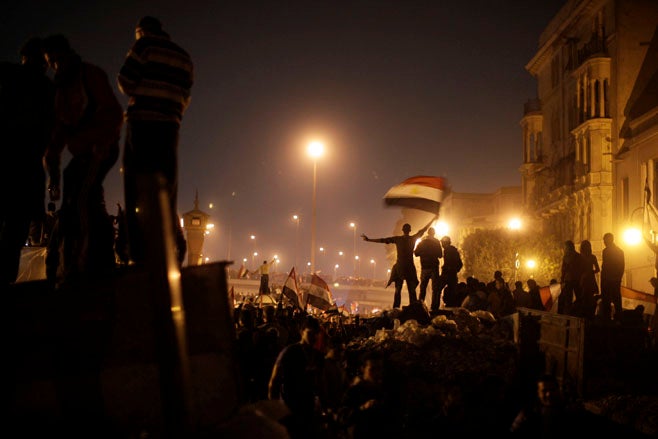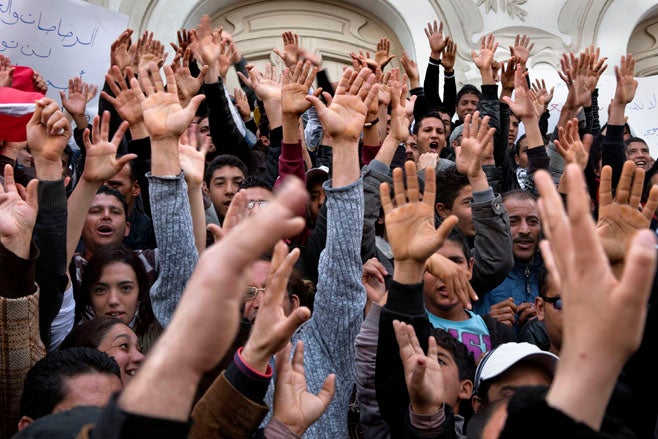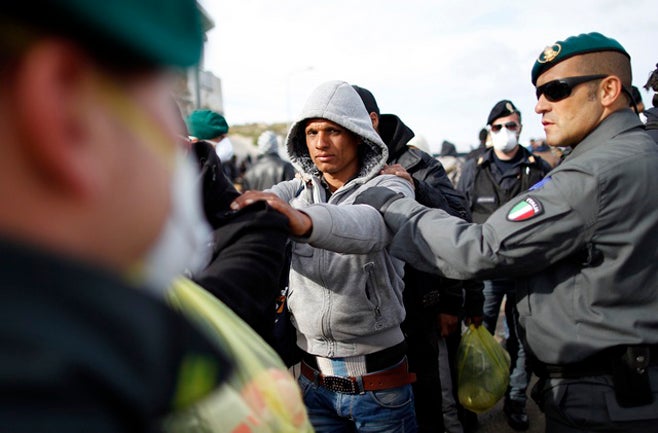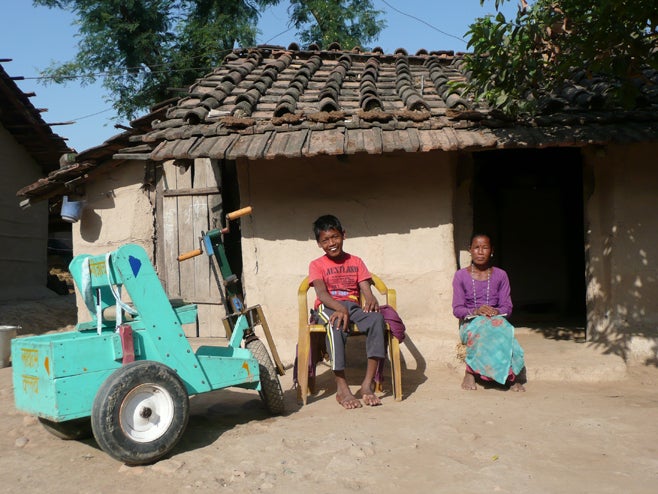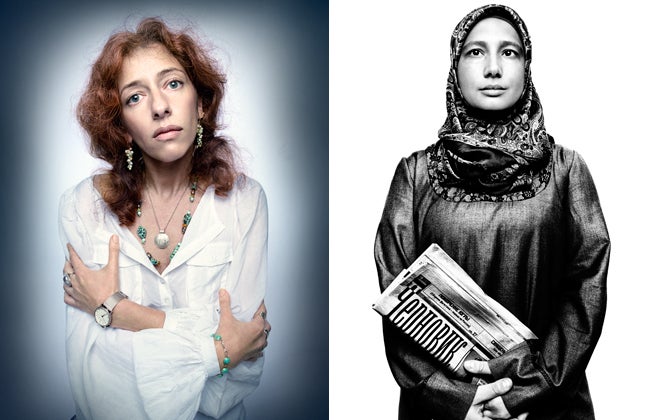The Vietnamese government systematically suppresses freedom of expression, association, and peaceful assembly. Independent writers, bloggers, and rights activists who question government policies, expose official corruption, or call for democratic alternatives to one-party rule are routinely subject to police harassment and intrusive surveillance, detained incommunicado for long periods of time without access to legal counsel, and sentenced to increasingly long terms in prison for violating vague national security laws.
Police frequently torture suspects to elicit confessions and, in several cases, have responded to public protests over evictions, confiscation of land, and police brutality with excessive use of force. Anti-China protests in Hanoi and Ho Chi Minh City in 2011 were dispersed and protesters were intimidated, harassed, and in some cases detained for several days.
The 11th Vietnam Communist Party Congress in January 2011 and the stage-managed National Assembly election in May determined the leadership of the party and government for the next five years. During both, there was no sign of any serious commitment to improve Vietnam’s abysmal human rights record. Prime Minister Nguyen Tan Dung began his second term in July, enjoying strong support from the Ministry of Public Security and other hard-liners.
Repression of Dissent
2011 saw a steady stream of political trials and arrests, likely spurred in part by Vietnamese government concerns that pro-democracy Arab Spring movement might reach Asia.
During the first 10 months of 2011, the authorities sent at least 24 rights activists to prison. All but one were convicted of “conducting propaganda against the state” (penal code article 88), “undermining national unity” (article 87), or “subversion of the administration” (article 79). These three vaguely defined articles have been employed to imprison hundreds of peaceful activists in the last decade. In addition, the police arrested at least 27 political and religious advocates in 2011. Blogger Nguyen Van Hai, known by his pen name Dieu Cay, has been held incommunicado since October 2010. Two other pro-democracy internet writers, Nguyen Ba Dang and Phan Thanh Hai, have been detained since 2010 without trial.
In a major trial in April 2011, prominent legal activist Dr. Cu Huy Ha Vu was convicted of conducting propaganda against the state and sentenced to seven years in prison. The sentence was upheld on appeal.
In May the People’s Court of Ben Tre convicted seven peaceful land rights activists, including Mennonite pastor Duong Kim Khai and Hoa Hao Buddhist member Tran Thi Thuy, for subversion and sentenced them to long prison terms.
Authorities continue to harass, interrogate, and in some cases detain and imprison online critics. In January 2011 police arrested human rights blogger Ho Thi Bich Khuong. In May democracy advocate Nguyen Kim Nhan was arrested for allegedly conducting propaganda against the state, five months after he was released from prison on the same charge. In August blogger Lu Van Bay was sentenced to four years for his pro-democracy articles published on the Internet. Also in August blogger Pham Minh Hoang was sentenced to three years for subversion.
Ethnic minority activists also face arrest and imprisonment. In January the Lang Son provincial court sentenced blogger Vi Duc Hoi, an ethnic Tay, on charges of conducting propaganda against the state to eight years in prison, reduced to five years on appeal in April. In March land rights activist Chau Heng, a member of the Khmer Krom minority group, was sentenced to two years in prison in An Giang on charges of “destruction of property” and “causing public disorder.” The People’s Court of Gia Lai imprisoned eight Montagnard Protestants in April to sentences between eight to twelve years for violating article 87 of the penal code, which outlaws “undermining unity policy.”
Freedom of Expression, Assembly, and Information
The government does not allow independent or privately-owned domestic media to operate and exerts strict control over the press and internet. Criminal penalties apply to authors, publications, websites, and internet users who disseminate materials deemed to oppose the government, threaten national security, reveal state secrets, or promote "reactionary" ideas. The government blocks access to politically sensitive websites, requires internet cafe owners to monitor and store information about users’ online activities, and subjects independent bloggers and online critics to harassment and pressure.
In August anti-China protests in Hanoi were dispersed with force. Protesters were intimidated, harassed, and detained for peacefully marching near the Embassy of China and around Hoan Kiem lake. Government media, including newspapers and television stations, continually cast negative images of protesters and labeled them “reactionary.”
Freedom of Religion
The government restricts religious practices through legislation, registration requirements, and harassment and surveillance. Religious groups are required to register with the government and operate under government-controlled management boards. Despite allowing many government-affiliated churches and pagodas to hold worship services, the government bans any religious activity that it arbitrarily deems to oppose “national interests,” harm national unity, cause public disorder, or “sow divisions.”
Local police continue to prohibit unsanctioned Buddhist Hoa Hao groups from commemorating the anniversary of the death of Hoa Hao founder Huynh Phu So. During Buddhist festivals in May and August, Da Nang police blocked access to Giac Minh and An Cu pagodas and intimidated Buddhist followers. Both pagodas are affiliated with the un-sanctioned Unified Buddhist Church of Vietnam.
Protestant pastor Nguyen Trung Ton was arrested in January on unknown charges. Three Catholic Ha Mon Montagnard activists—Blei, Phoi, and Dinh Pset—were arrested in March. Two Hoa Hao activists, Nguyen Van Lia and Tran Hoai An, were arrested in April and July.. Also in April Protestant pastor Nguyen Cong Chinh was arrested and charged with “undermining national unity.” At least 15 Catholics affiliated with Redemptorist churches in Hanoi and Ho Chi Minh City, including bloggers Le Van Son and Ta Phong Tan, were arrested in July, August, and September.
In July prominent religious and democracy campaigner Father Nguyen Van Ly was sent back to prison after approximately 16 months of medical parole/house arrest. Father Ly suffers from partial paralysis resulting from strokes previously suffered in prison and there continue to be serious concerns for his health.
Criminal Justice System
Police brutality, including torture and fatal beatings, continues to be reported in all regions of the country. At least 13 people died in police custody within the first 10 months of 2011.
Political and religious detainees and others whose cases are considered sensitive are frequently tortured during interrogation, held incommunicado prior to trial, and denied family visits and access to lawyers. Vietnamese courts remain under the firm control of the government and the Vietnam Communist party, and lack independence and impartiality. Political and religious dissidents are often tried without the assistance of legal counsel in proceedings that fail to meet international fair trial standards. Defense lawyers who take on politically sensitive cases are intimidated, harassed, debarred, and imprisoned.
Vietnamese law continues to authorize arbitrary “administrative detention” without trial. Under Ordinance 44 (2002) and Decree 76 (2003), peaceful dissidents and others deemed threats to national security or public order can be involuntarily committed to mental institutions, placed under house arrest, or detained in state-run "rehabilitation" or “re-education” centers.
People dependent on illegal drugs can be held in government detention centers where they are subjected to “labor therapy,” the mainstay of Vietnam’s approach to drug treatment. In early 2011 there were 123 centers across the country holding some 40,000 people, including children as young as 12. Their detention is not subject to any form of due process or judicial oversight and routinely lasts for as long as four years. Infringement of center rules—including the work requirement—is punished by beatings with truncheons, shocks with electrical batons, and being locked in disciplinary rooms where detainees are deprived of food and water. Former detainees report being forced to work in cashew processing and other forms of agricultural production, including potato or coffee farming; construction work; and garment manufacturing and other forms of manufacturing, such as making bamboo and rattan products. Under Vietnamese law, companies who source products from these centres are eligible for tax exemptions. Some products produced as a result of this forced labor made their way into the supply chain of companies who sell goods abroad, including to the United States and Europe.
Key International Actors
Vietnam’s complicated relationship with China plays a key role in both domestic and foreign affairs. Domestically, the government has been increasingly criticized on nationalist grounds by many activists and some retired military officials for weak responses to what is widely seen in Vietnam as China’s aggressive behavior in the disputed Spratly and Paracel Islands. The government in 2011 worked to silence this increasingly public and audible anti-China chorus.
Internationally, the government has attempted to increase cooperation with the US, India, Japan, and neighboring Association of Southeast Asian Nations countries as a regional counter-balance China’s influence.
Despite Japan’s considerable leverage as Vietnam’s largest bilateral donor, it has repeatedly failed to publicly comment on Vietnam’s deteriorating rights record.
The relationship between Vietnam and the US continues to grow closer. In September Vietnam opened a new consulate in New York, and the US Consulate in Ho Chi Minh City expanded with the opening of an American Center. The US and Vietnam are also among those currently negotiating to join the Trans-Pacific Partnership, a multilateral free trade agreement.
In January and May United Nations independent experts who had visited Vietnam in 2010 published their findings. The UN special rapporteur on human rights and extreme poverty issued a broadly positive report but urged the government to ratify and implement major human rights treaties, including the Convention against Torture and Other Cruel, Inhuman or Degrading Treatment. The UN special rapporteur on minority issues issued a more critical report, acknowledging some progress but raising concerns about the potential denial of religious freedom and “other serious violations of civil rights.” The rapporteur also pointedly noted that obstacles during her visit “impeded her ability to obtain perspectives other than those in consonance with official Government positions.”
